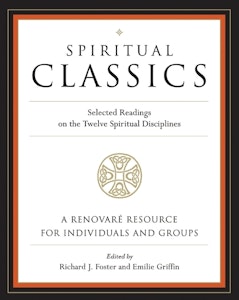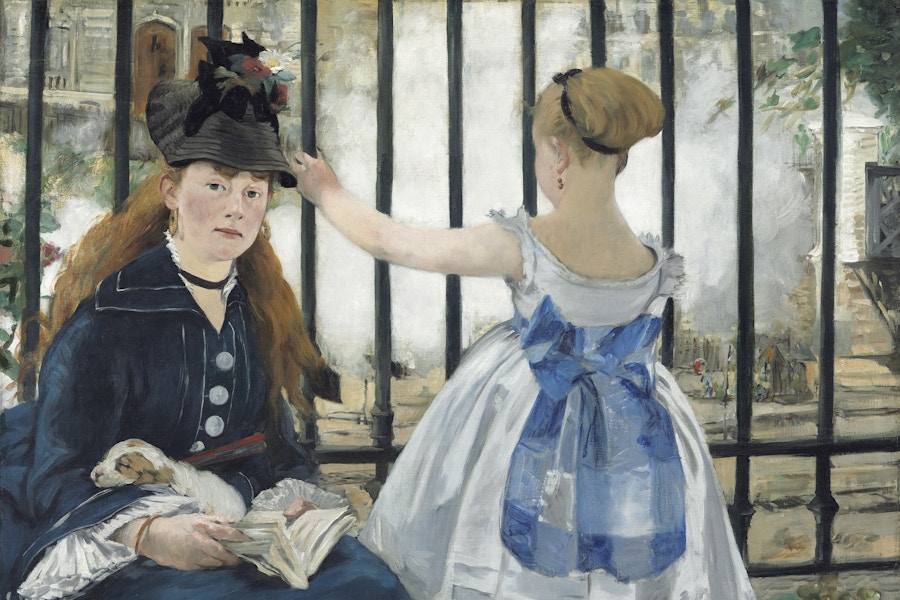Introductory Note:
G.K. Chesterton (1874-1936) was a British writer and journalist. While he often wrote on the subject of Christian apologetics, perhaps considered a “serious” subject, he did it with a child-like eye towards truth. He certainly could see how the kingdom belonged to the children and how they would lead their adult counterparts into a fuller embodiment. In the following excerpt Chesterton writes about his “bitter envy” for missing a flood occurring in London. He honors the gift of resilience located in the imaginations of children and playfully chastises adults for missing out on the adventure.
Lacy Finn Borgo
 Excerpt from Spiritual Classics
Excerpt from Spiritual Classics
Enjoying the Floods and Other Disasters
I feel an almost bitter envy on hearing that London has been flooded in my absence, while I am in the mere country. [An exceptional rainfall in London too, on June 30, over two inches in twenty-four hours, caused serious floods there and in nearby counties.] My own Battersea has been, I understand, particularly favoured as a meeting of the waters. Battersea was already, as I need hardly say, the most beautiful of human localities. Now that it has the additional splendour of great sheets of water there must be something quite incomparable in the landscape (or waterscape) of my own romantic town. Battersea must be a vision of Venice. The boat that brought the meat from the butcher’s must have shot along those lanes of rippling silver with the strange smoothness of the gondola. The greengrocer who brought cabbages to the corner of the Latchmere Road must have leant upon the oar with the unearthly grace of the gondolier. There is nothing so perfectly poetical as an island; and when a district is flooded it becomes an archipelago.
The joy of inconveniences
Some consider such romantic views of flood or fire slightly lacking in reality. But really this romantic view of such inconveniences is quite as practical as the other. The true optimist who sees in such things an opportunity for enjoyment is quite as logical and much more sensible than the ordinary “Indignant Ratepayer” who sees in them an opportunity for grumbling. Real pain, as in the case of being burnt at Smithfield [where the Protestant martyrs were burned during the reign of Queen Mary] or having a toothache, is a positive thing; it can be supported, but scarcely enjoyed. But, after all, our toothaches are the exception, and as for being burnt at Smithfield, it only happens to us at the very longest intervals. And most of the inconveniences that make men swear or women cry are really sentimental or imaginative inconveniences — things altogether of the mind.
Waiting for a train
For instance, we often hear grown-up people complaining of having to hang about a railway station and wait for a train. Did you ever hear a small boy complain of having to hang about a railway station and wait for a train? No; for to him to be inside a railway station is to be inside a cavern of wonder and a palace of poetical pleasures. Because to him the red light and the green light on the signal are like a new sun and a new moon. Because to him when the wooden arm of the signal falls down suddenly, it is as if a great king had thrown down his staff as a signal and started a shrieking tournament of trains. I myself am of little boys’ habit in this matter. They also serve who only stand and wait for the two fifteen. Their meditations may be full of rich and fruitful things; and many of the most purple hours of my life have been passed at Clapham Junction, which is now, I suppose, under water. I have been there in many moods so fixed and mystical that the water might well have come up to my waist before I noticed it particularly. But in the case of all such annoyances, as I have said, everything depends upon the emotional point of view. You can safely apply the test to almost every one of the things that are currently talked of as the typical nuisance of daily life.
Inconvenience rightly considered
So I do not think that it is altogether fanciful or incredible to suppose that even the floods in London may be accepted and enjoyed poetically. Nothing beyond inconvenience seems really to have been caused by them; and inconvenience, as I have said, is only one aspect, and that the most unimaginative and accidental aspect of a really romantic situation. An adventure is only an inconvenience rightly considered. An inconvenience is only an adventure wrongly considered. The water that girdled the houses and shops of London must, if anything, have only increased their previous witchery and wonder. For as the Roman Catholic priest in the story said: “Wine is good with everything except water,” and on a similar principle, water is good with everything except wine. Last week may be said to have exhibited teetotalism on a gigantesque scale. To have water, water everywhere, and not a drop to drink seems to me to put that element exactly to its proper use. The whole human race has exhibited as one consistent principle the principle that those who saw most of the water drank least of it. Fishermen, sailing men, divers, and all others have always acted upon the idea that there might be any amount of water outside them, but none inside them.
Conclusion:
I wonder in what ways the inconveniences you face today might be experienced through the eyes of a child? How can you enter into the adventure of your day?
Excerpts taken from Spiritual Classics: Selected Readings on the Twelve Spiritual Disciplines (Richard Foster and Emilie Griffin, Editors. Harpercollins, 2000.) and are used with permission.


